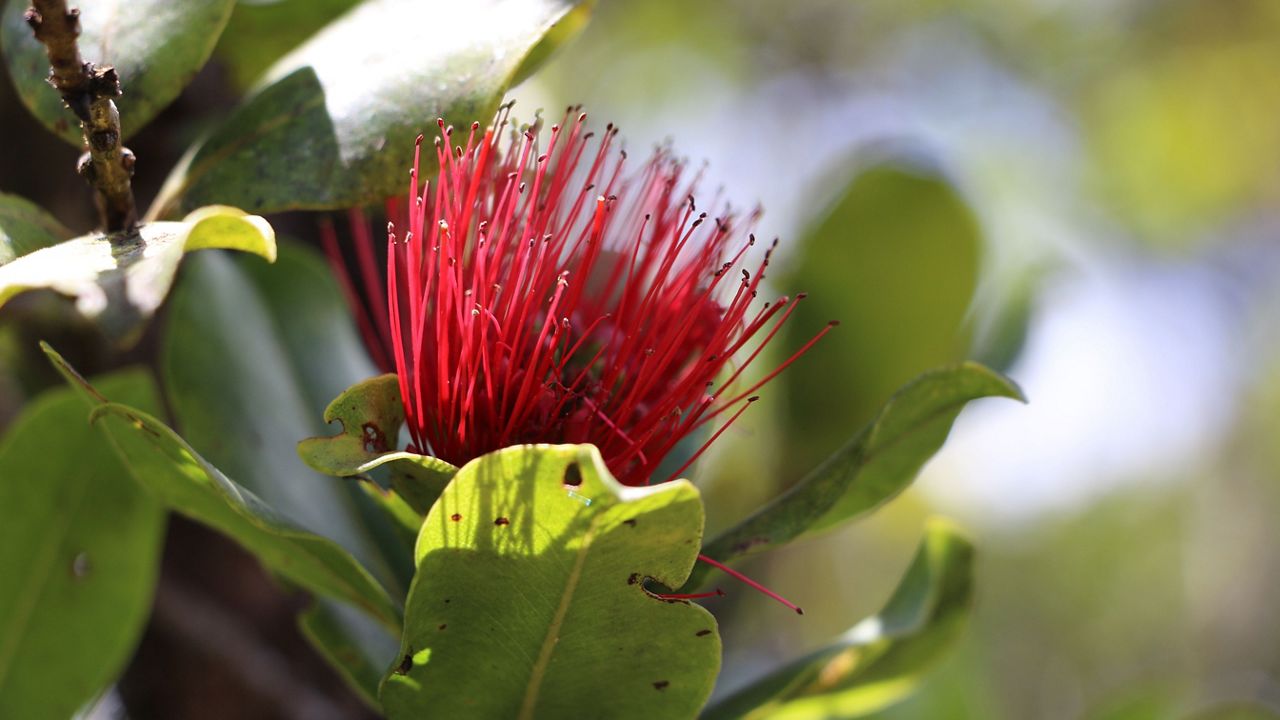In its ongoing effort to stop the spread of the rapid ohia death, the state Department of Agriculture is reminding travelers attending this week’s Merrie Monarch Festival that it is illegal to transport ohia from Hawaii Island without a permit.
The quarantine restriction applies to ohia plants and plant parts, including flowers, leaves, seeds, stems, twigs, cuttings, untreated wood, logs, mulch, green waste, frass (the sawdust produced from insects that bore into the plant), and any soil from Hawaii Island.
Transport of ohia plants or related material is only allowed with a permit issued by the state Department of Agriculture’s Plant Quarantine Branch.
“We are glad that the Merrie Monarch Festival is back in full force and everyone can enjoy the week of festivities,” said Sharon Hurd, chairperson of the Hawaii Board of Agriculture. “However, it is important that travelers not take any part of the ohia off the island to prevent further spread of rapid ohia death.”
The fungal plant disease is estimated to have killed at least a million ohia trees on Hawaii Island alone.
Agricultural inspectors will be stationed at airports in Hilo and Kona to collect any ohia material that is intercepted and will return it to native forests on the island.
“It takes all of us to protect Hawaii,” Hurd said.
The reminder came the same day that the state Department of Land and Natural Resources announced that ROD was recently detected for the first time in the Waianae mountain range on Oahu.
Previously, the Oahu-based detections of the disease had been limited to multiple locations within the Koolau range.
During invasive species surveys conducted by the Oahu Invasive Species Committee, a roughly 40-foot ohia tree was found with symptoms of ROD. OISC collected a sample of the tree and sent it to the U.S. Department of Agriculture’s Agriculture Research Service lab in Hilo for analysis, where it was confirmed that Ceratocystis huliohia, the less aggressive of two fungal strains that cause ROD, was present.
A team from the DLNR Division of Forestry and Wildlife (DOFAW) and OISC returned to the fallen tree to keep the infected material from spreading.
Emergency quarantine restrictions have been in place since 2015 to prevent the disease from spreading to other islands. A permanent quarantine was put in place the following year.
Violating the quarantine is a misdemeanor punishable by a fine of $100 to $10,000. A second offense committed within five years of a prior conviction is subject to a fine between $500 and $25,000.
The reminder was issued because the hula festival typically draws dozens of hula halau and hundreds of spectators to the island.
“It is important to note that the very act of harvesting ohia may spread the disease, as spores may be carried in soil and by harvesting tools, vehicles, shoes and clothing to uninfected areas,” DOA stated in a news release on Monday. “Multi-agency ROD working groups have been meeting with Native Hawaiian groups, the Merrie Monarch organization and other community groups to provide advice and guidance on the handling of ohia material.”
The disease was detected on Kauai in 2018 and on Oahu in 2019. Also, in 2019, one ohia tree on Maui was infected and destroyed, and ROD has not been detected on the island since. How the disease entered the state or where it came from is unknown.
Michael Tsai covers local and state politics for Spectrum News Hawaii.



